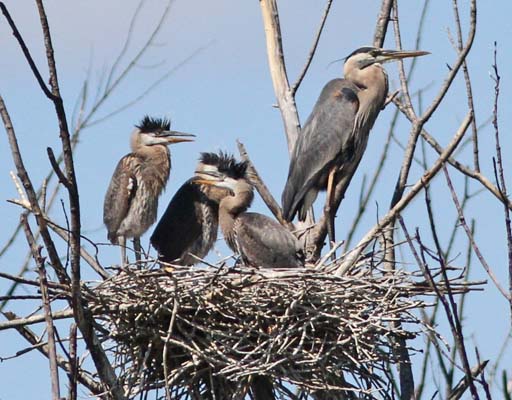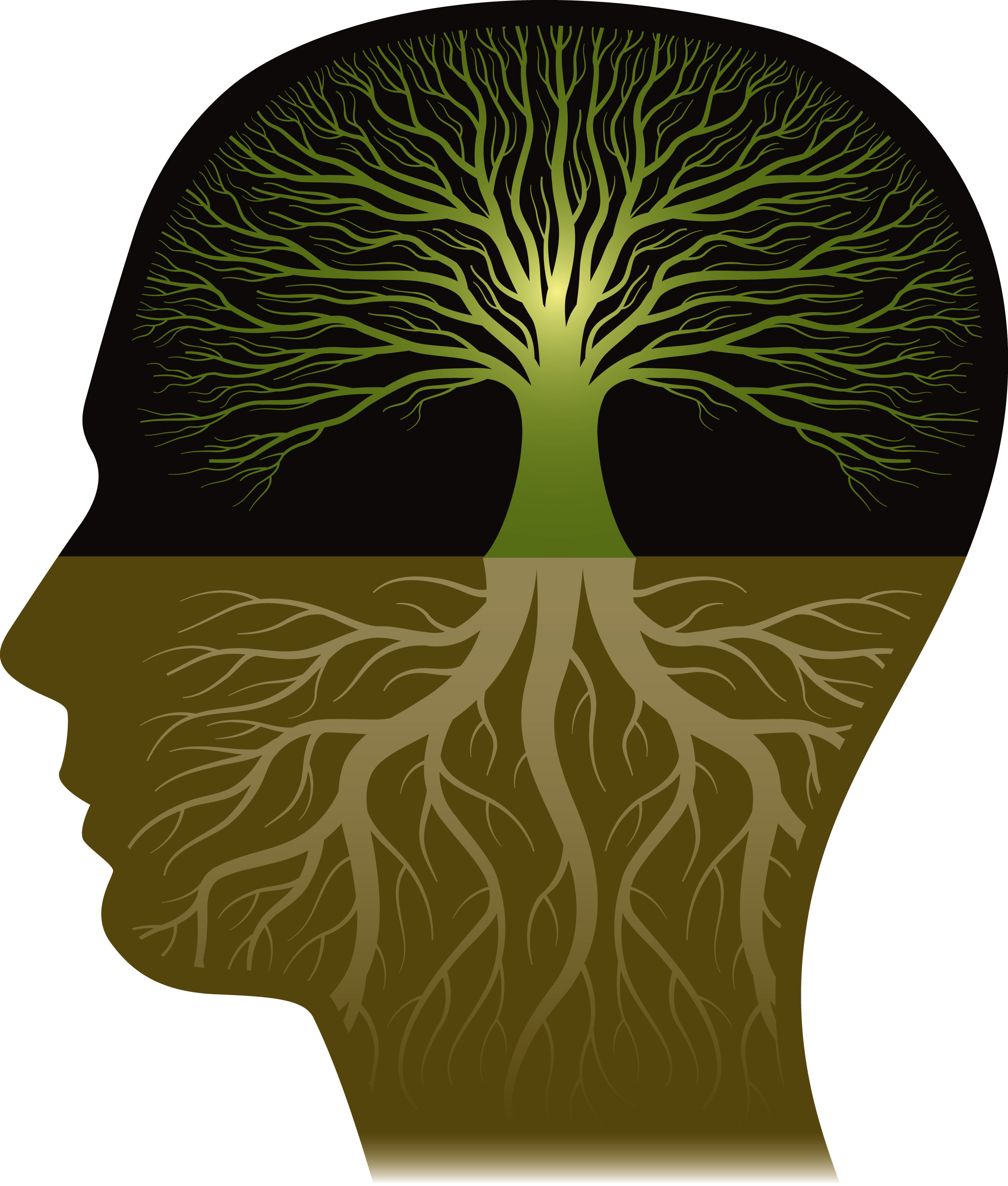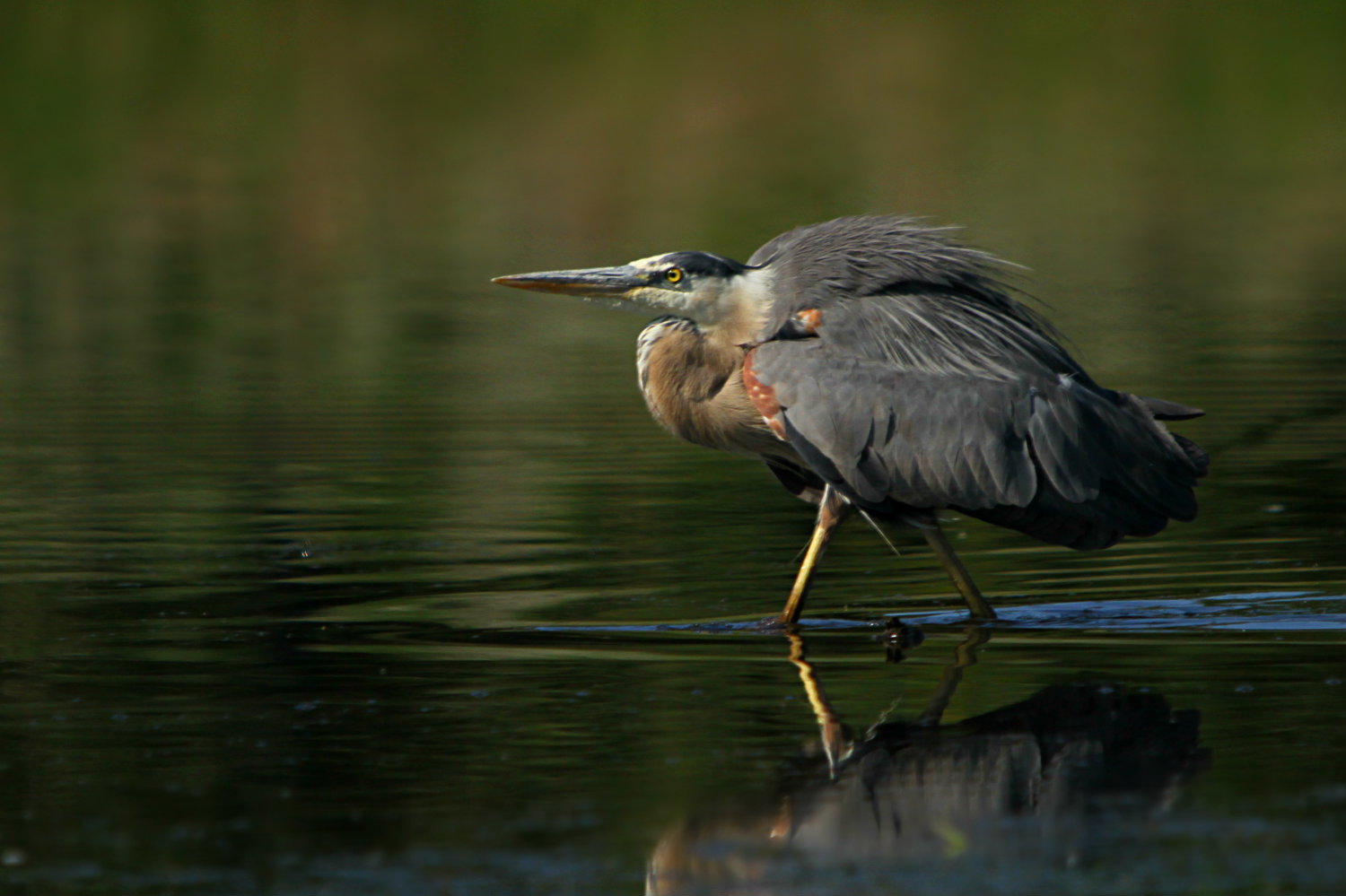Recently I watched a documentary about a species of heron that had learned how to fish, but is unable to transmit that knowledge to its offspring. It raised the question: What is conditioning, and is it possible to raise children without conditioning?
 The heron normally feeds on fish that it spears after waiting and watching patiently for a prey in the shallows. By observing children throwing bread to fish in a lake, a few exceptional herons of this species learned how to use bread as bait.
The heron normally feeds on fish that it spears after waiting and watching patiently for a prey in the shallows. By observing children throwing bread to fish in a lake, a few exceptional herons of this species learned how to use bread as bait.
They would scoop up a piece of bread, fly off to another part of the lake, and carefully place the crumb in the water. When a fish surfaces to eat the morsel, the herons grab the fish. Pretty smart.
The show, managing to be at once speciesist and sexist, ended with this silly statement: “Sadly, the herons don’t learn from each other; when one dies, his knowledge dies with him.”
Apparently heron that learns the trick learns it anew, and cannot pass it on to their offspring. Beyond our species prejudice, the implication of this example of animal learning generates ripples of questions and insights.
First and foremost: Are there actually two kinds of learning, when we believe there is only one?
There is the kind of learning we’re conditioned to believe is primary, which is accumulative and transmittable. And there’s a kind of learning that is non-accumulative and non-transmittable. So in one sense, we’re like the herons that have to learn some things anew, for ourselves.
Knowledge is accumulative, but understanding is a matter of continually unlearning what we know and think we know. How is that kind of learning to be conveyed? Can teachers and parents live that way and teach children to not carry over unnecessary knowledge, so they unlearn as they learn, scholastically and in life?
Meditation involves both unlearning and non-accumulative learning in the present. Both are meaningless to most people at present. But I’m sure that human survival and growth now depend on this completely different kind of learning.
Obviously, it must be possible to convey these things, or we couldn’t write or speak about them. Part of problem is developing a language for the new territory in which we find ourselves, a very different kind of world than has existed in the past.
The challenge is not letting words and ideas become a substitute for inquiry and exploration, and learning how to learn, and unlearn, for oneself.
A young child learns by watching. If she sees adults who are deeply aware, she will develop awareness. Not through imitation, but because she sees the importance of being aware herself.
To look with eyes and mind and heart that have been bathed clean of conditioning, of all prior experience, and see again as a young child sees, is to  have a direct perception life and death.
have a direct perception life and death.
I’ve never been one for Zen koans. They’ve always seemed to me to be trick questions designed to produce insights that simple, undivided observation can engender. But here’s a kind of koan: What is learning when it is based on unlearning?
The corollary of this question is just as paradoxical–is there a knowing that is not a matter of knowledge? This area of inquiry is known as epistemology, “the branch of philosophy that studies the nature of knowledge, in particular its foundations, scope, and validity.”
To learn the art of meditation is to realize, at the outset, that there is nothing to learn. The intent is not to add more knowledge and experience, but to free the mind from the grip of knowledge and experience.
Knowledge is of two types—useful and useless—and neither has anything to do with the awakened state. Obviously, at one level, we need to know how to build a house or drive a car.
But much of the content of knowledge that we lug around is of the worthless, chattering variety—the proverbial ‘baggage.’ Indeed, most experience is just the residue of the past. For example, a grudge, the memory/feeling of how someone did me wrong. Not resolving and ending that experience, it hardens into hate, which is a most destructive sort of emotional knowledge.
We humans are very proud of our capacity for learning, but unlearning is as important as learning. So can unlearning be taught? Can the non-accumulative kind of learning be lived, and conveyed to children?
Martin LeFevre

